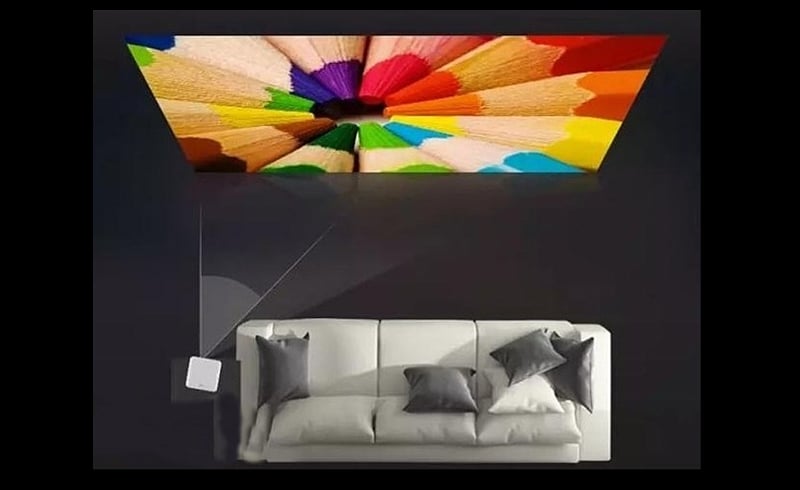

Projector users must be familiar with keystone correction. It is a feature that allows you to put your projector less accurately and still get a square image output. Because no matter you place the projector off-axis or in positions too high or too low, even if you didn’t keep it parallel to the screen, auto keystone correction will automatically adjust the distorted picture, making the askew image square again.


The ordinary keystone correction only allows users to place the projector in less accurate positions, but still need to make sure the lens is roughly parallel to the screen. However, to make the projection get rid of the limit of placement. Japanese top digital product brands like Sony, Epson and Casio have started their study about this early since 2003, which is to realize the full-automatic image correction even if projecting from the side and adjust the deformed image into a better square shape.
15 years have passed, there’s no progress has been gained regarding this research and study until a breakthrough has been made by China in 2017. Since then, 4D full-automatic keystone correction is implemented.
4D keystone correction takes only 3 seconds, however, the ordinary keystone correction needs a few minutes.
4D keystone correction can adjust the deformed image into a precise square of 16: 9, the ordinary keystone correction is less accurate and the quality of the image will be degraded.
4D keystone correction is full-automatic, requires no manual operation even if you project the image from the side. But the ordinary keystone correction requires users to further adjust the image with remote control.
In general, the difference between these two kinds of keystone correction is like the difference between a full-automatic washing machine and a half-automatic washing machine. 4D keystone correction technology truly enables hands-free in keystone correction, has been widely used in the projector industry.
Read more: